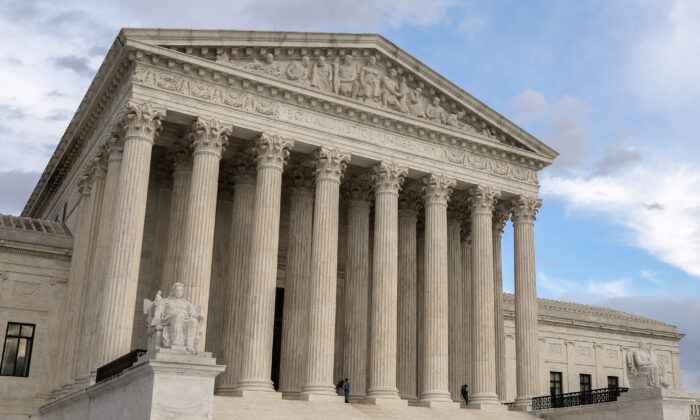The Supreme Court heard two cases challenging laws in Washington and Colorado that require members of the Electoral College in every quadrennial presidential election to cast their ballots in favor of the winner of that state’s popular votes.
Some justices expressed concern during oral arguments on May 13 that not requiring electors to vote in accordance with the wishes of popular voters in their state could lead to political upheaval and debilitating chaos.
The hearing comes as the next presidential election approaches on Nov. 3. In the 2016 election, Republican Donald Trump won a majority of electoral votes and became president, defeating Democrat Hillary Clinton, who won more popular votes.
That event appeared to give a boost to the National Popular Vote movement, an effort to create an interstate compact compelling presidential electors to cast their ballots for the candidate who wins the popular vote nationwide. The goal of the movement is to effectively mandate the direct election of the president without having to amend the U.S. Constitution, a notoriously difficult task.
Critics say the proposal is unconstitutional and subverts the will of the Founding Fathers who opposed direct democracy, which many derided in the early days of the nation as “mobocracy.”
While some states have laws that punish so-called faithless electors for not voting for the candidate to which they pledged support, there have long been legal questions about the enforceability of such laws.
The first case, Chiafalo v. Washington, dealt with a Washington law that fines presidential electors who go against the popular vote in that state. The petitioners are three 2016 presidential electors who were fined because they failed to vote as the law directs.
Petitioners challenge the law saying the state has no power to enforce how a presidential elector casts his or her ballot, and that penalizing an elector for exercising his or her constitutional discretion to vote violates the First Amendment. The Washington Supreme Court upheld the fines.
In the second case, Colorado Department of State v. Baca, Electoral College member Micheal Baca was part of a group called the “Hamilton electors,” who attempted to convince 2016 electors who were pledged to Democrat Hillary Clinton or Republican Donald Trump to come together behind an alternative candidate to prevent a Trump victory. When the electors met to vote on Dec. 19, 2016, Baca crossed out Clinton’s name on his ballot and wrote in then-Ohio Gov. John Kasich, a Republican who also ran for president in the 2016 cycle.
The state refused to accept the vote and removed Baca as an elector, replacing him with another elector who voted for Clinton.
Almost immediately after Trump emerged as the winner early in the morning on Nov. 9, 2016, activists such as Baca, angry about the defeat of Clinton, launched a campaign to try to pressure the 306 Electoral College members pledged to vote for Trump to vote for someone else when the electoral votes were to be cast. Trump ended up receiving 304 votes in the Electoral College, well over the threshold of 270 needed to win. Clinton received 227 votes in the Electoral College, after winning 232 in the election.
Unlike the end result in the Washington state case, the 10th Circuit Court of Appeals ruled that Electoral College members are free to vote for the presidential candidate they choose and can’t be bound by the popular vote in their respective states.


